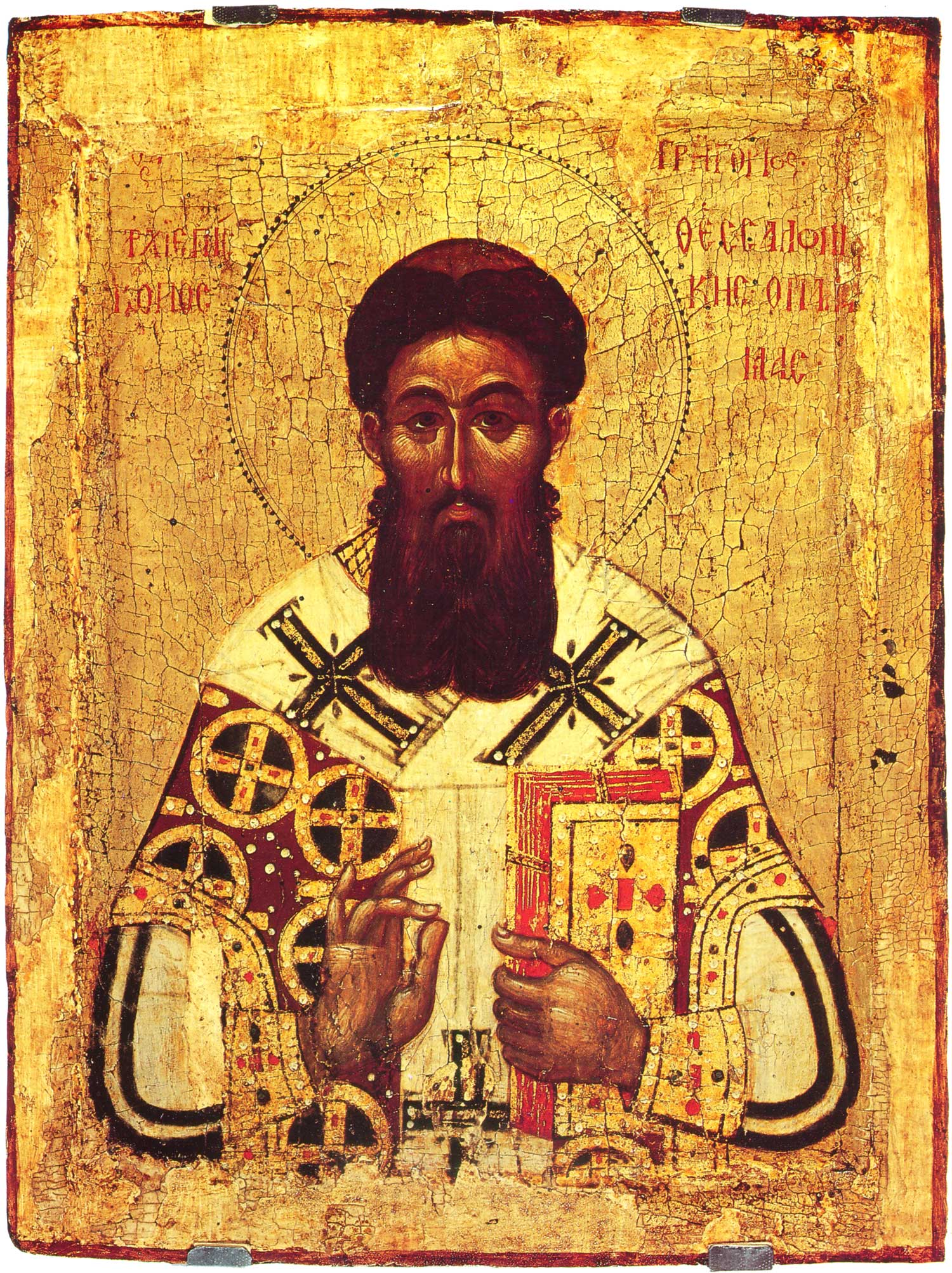“The soul completely dominated by its desire for spiritual instruction is never sated.”
The Philokalia Vol. 4, Faber and Faber.
Gregorio Palamás en escritura griega: Γρηγόριος ο Παλαμάς , teólogo bizantino.
Renovó la mística y el monaquismo ortodoxo. El movimiento religioso emanado de su acción apostólica es el hesicasmo. En sus grandes obras la Prosopopeya, Teófanes y las Tríadas, en defensa de los santos hesicastas, defendió la experiencia cristiana de un racionalismo teológico que podría arruinar el cristianismo y, sobre todo, el sentido de la vida monástica .
Las posiciones de Palamás se dirigen tanto contra los partidarios de la cultura renacentista en Constantinopla en el siglo XIV, cuando esta cultura quiere invadir y juzgar a la esfera religiosa. Los presupuestos teológicos de Palamás no se basan en una filosofía sino en la experiencia cristiana. Su pensamiento no es compatible con algunos supuestos de la filosofía aristotélico-tomista. La Iglesia ortodoxa lo ha canonizado como santo.
Wikipedia

“The soul completely dominated by its desire for spiritual instruction is never sated.”
The Philokalia Vol. 4, Faber and Faber.
Fuente: Holy Hesychia: The Stillness that Knows God, p. 33
Fuente: To the Most Reverend Nun Xenia (c. 1344), p. 295
Fuente: Homilies (Mount Tabor Publishing), p. 13
1 Corinthians 8:1
Fuente: Holy Hesychia: The Stillness that Knows God, p. 33
Fuente: To the Most Reverend Nun Xenia (c. 1344), p. 296
Fuente: The Parables of Jesus: Sermons by Saint Gregory Palamas
Fuente: The Parables of Jesus: Sermons by Saint Gregory Palamas
Fuente: The Parables of Jesus: Sermons by Saint Gregory Palamas
Fuente: The Parables of Jesus: Sermons by Saint Gregory Palamas
Fuente: Predestination? On Why God Made Those Who Would Perish
Fuente: Predestination? On Why God Made Those Who Would Perish
Predestination? On Why God Made Those Who Would Perish